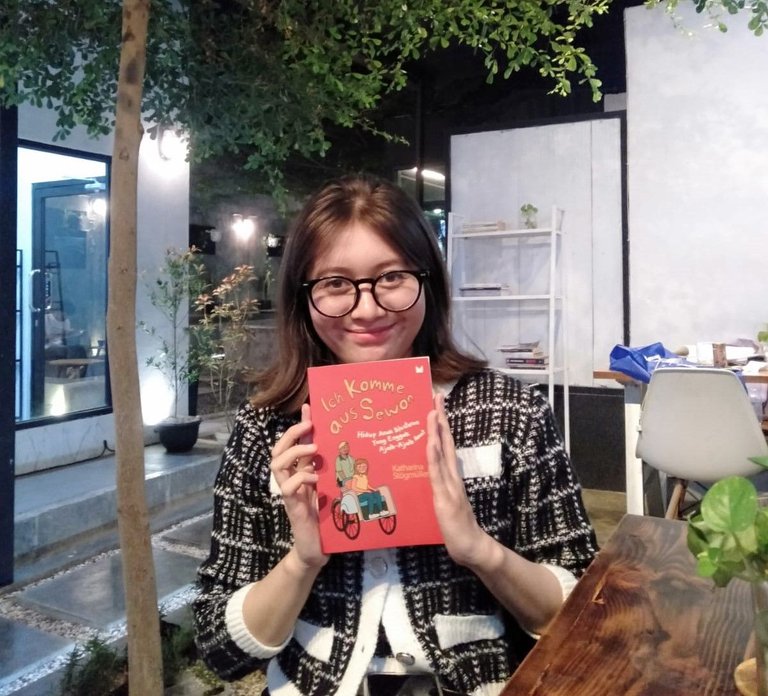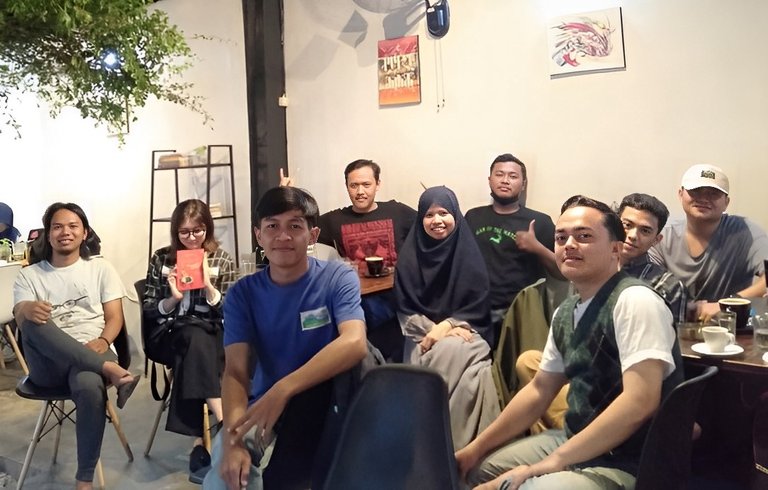"Mom, when would my hair turn black like the hair of my other friends?" "Doesn’t matter, as soon as you grow up, your hair will by nature turn black."
It's a snippet of conversation between Katharina Stögmüller, as a rule, known as Kathi, with her mother.
Kathi is one of the countless women determined to challenge stereotypes about bule, Caucasians. Throughout her life, Kathi has had her fill of "miraculous" comments made to her by Indonesians about her.
Being born mixed-race as a Javanese-Austrian mulatto with a different, westernized face, makes numerous people think that Kathi's life is full of privilege in Indonesia.
As a result, at times, she is well referred to as Mba Bul (a colloquial term that playfully combines Mba - a Javanese term for addressing a young woman - and Bul, derived from bule which means Caucasians in Indonesia).
Is that so? Is it accurate that bule have a higher caste so they get more privileges in society?

To address the question, the Klub Buku Main-Main invited Kathi to dissect her book titled "Ich Komme aus Sewon – I am from Sewon, Bantul - in the 63rd week of discussion themed "Benarkah Bule Berkasta Lebih Tinggi - Is it true that bule have a higher caste?" on Monday, 21st August 2023.
In the discussion held at Kineta Coffee & Public Sphere, Kathi shared that since elementary school, she had over and over been bullied by her teachers.
A memorable scene was when she wasn't proficient in English yet. There was a time when she couldn't write the word "eight," and her teacher remarked, "You're a bule, you must be able to speak English," while mimicking the teacher's words.
However, Kathi had time and again explained that her parents were from Austria and mostly spoke German. Aside from the language issue, when Kathi was a child, she was often faced with accusations that her father had married her mother for ulterior motives, such as being able to purchase property in Indonesia.
"No matter how I explained, my teachers still didn't believe me," Kathi said.
The educational years were a period of identity crisis for Kathi. She felt she wasn't seen as an Indonesian due every single time she met someone and she was told to be from Sewon, Yogyakarta, Indonesia no one thought of her.
Back in her college days, Kathi ever dyed her hair black to "look more" Indonesian.
Abdul Ghafur, also known as Apong, one of the participants in the discussion, then asked, "What is Kathi aiming to achieve by writing the book 'Ich Komme aus Sewon'?"
Because, by Apong, it ain't just Kathi who has often been the object of bullying. Apong himself has experienced it due he comes from Madura. Several stereotypes are a lot of times associated with people from Madura, such as "satay seller" and "scrap metal collector, junk seller."
"I want intermarried people, mulatto, like mine and others to be considered as Indonesians also," Kathi responded, "We will want to be recognized as Indonesian citizens and contribute to this country, Indonesia."

The book titled Ich Komme aus Sewon is divided into three layers of chapters and was written in Bahasa: "Pada Suatu Hari - One Day," "Keluarga yang Biasa Saja - An Ordinary Family," and "Menikmati Kerumitan-Kerumitan Duniawi - Enjoying the Complexities of the World."
The first chapter, "One Day," recounts Kathi's childhood, including events before her birth, such as the story of her parent's date.
After that, the story progresses to her infancy years, which have reached a stage of identity conflict, beginning with Kathi's experience of facing the taunts of being called londho.
Moving on to the second chapter, Kathi begins to share unique, funny, absurd, and thought-bug stories. Her writings in this chapter delve more into the teenage years leading up to early adulthood.
Then, entering the third chapter, which serves as the concluding chapter, we start to see the moral values that the book Ich Komme aus Sewon aims to convey.
The issues raised in each chapter of this book are not just internal conflicts, but they will involve a broader scope, including conflicts that encompass the state. Kathi firmly exposes the experiences and struggles she had to face, which go beyond personal matters and touch upon societal issues.

In this discussion, Gusti Purbo Darpitojati, another participant in the chatter, provided testimony about Kathi's writing style.
In line with Gusti, Kathi's writing resonates with readers due to two factors. Beginning with her language is light and easy to comprehend. In the second place, Kathi frequently employs local language elements, such as expressions in Javanese, making her writing feel relevant to Gusti's personal life.
Not only for Gusti, but this book is at the bottom relevant to anyone advocating against discrimination and voicing equality.
It should be ingrained in our mindset that no race holds a superior or inferior status compared to others. Therefore, the question Is it true that bule have a higher caste? should have received an answer right from the beginning of the discussion.
In Indonesia, the legacy of colonialism that hasn't entirely faded away has led to Kathi being labeled as if her Caucasian heritage somehow makes her superior to those who aren't of intermarriage, mulatto. Our society is still influenced by the demeaning concept of inlander. This should be a collective reflection for all of us.
An example that is not far off is in the naming of tourist destinations. We repeatedly see the addition of "... van Java" to the names of these places to make them seem more marketable.
In the same way, in entertainment news, cases of marriages between Indonesians and foreigners are often repeatedly reported as an "achievement." Isn't every marriage an achievement, regardless of their ethnicity?
The main issue that Katharina wants to convey through her book is to raise our awareness about this. A human being is created uniquely; hence, there's no need to feel inferior or superior. What matters most is to love and respect one another [mhg].
Congratulations @iamaheng! You have completed the following achievement on the Hive blockchain And have been rewarded with New badge(s)
Your next target is to reach 100 upvotes.
You can view your badges on your board and compare yourself to others in the Ranking
If you no longer want to receive notifications, reply to this comment with the word
STOPCheck out our last posts: